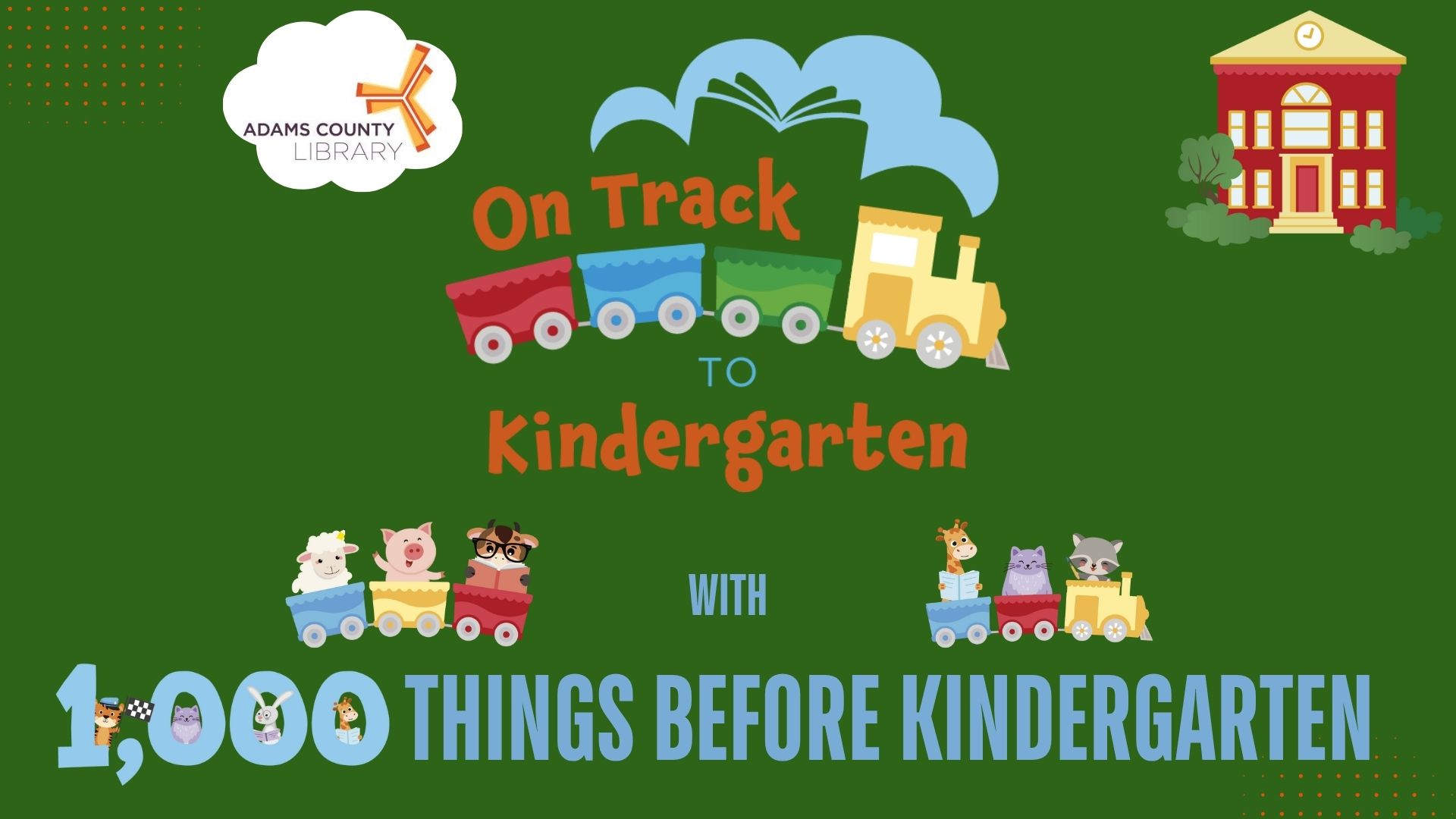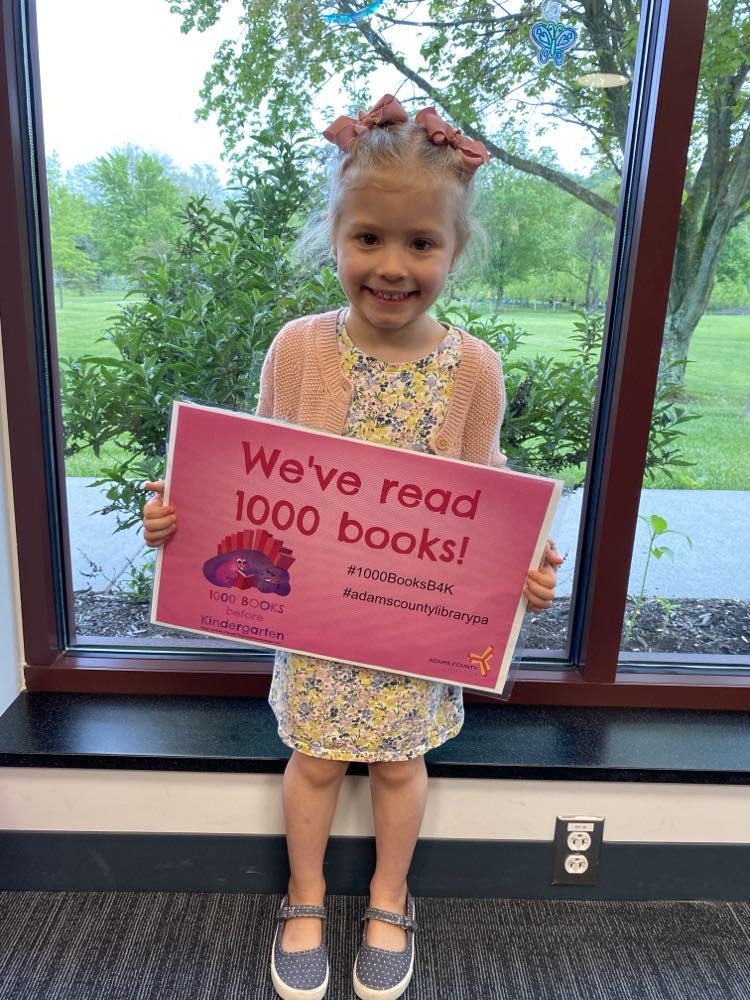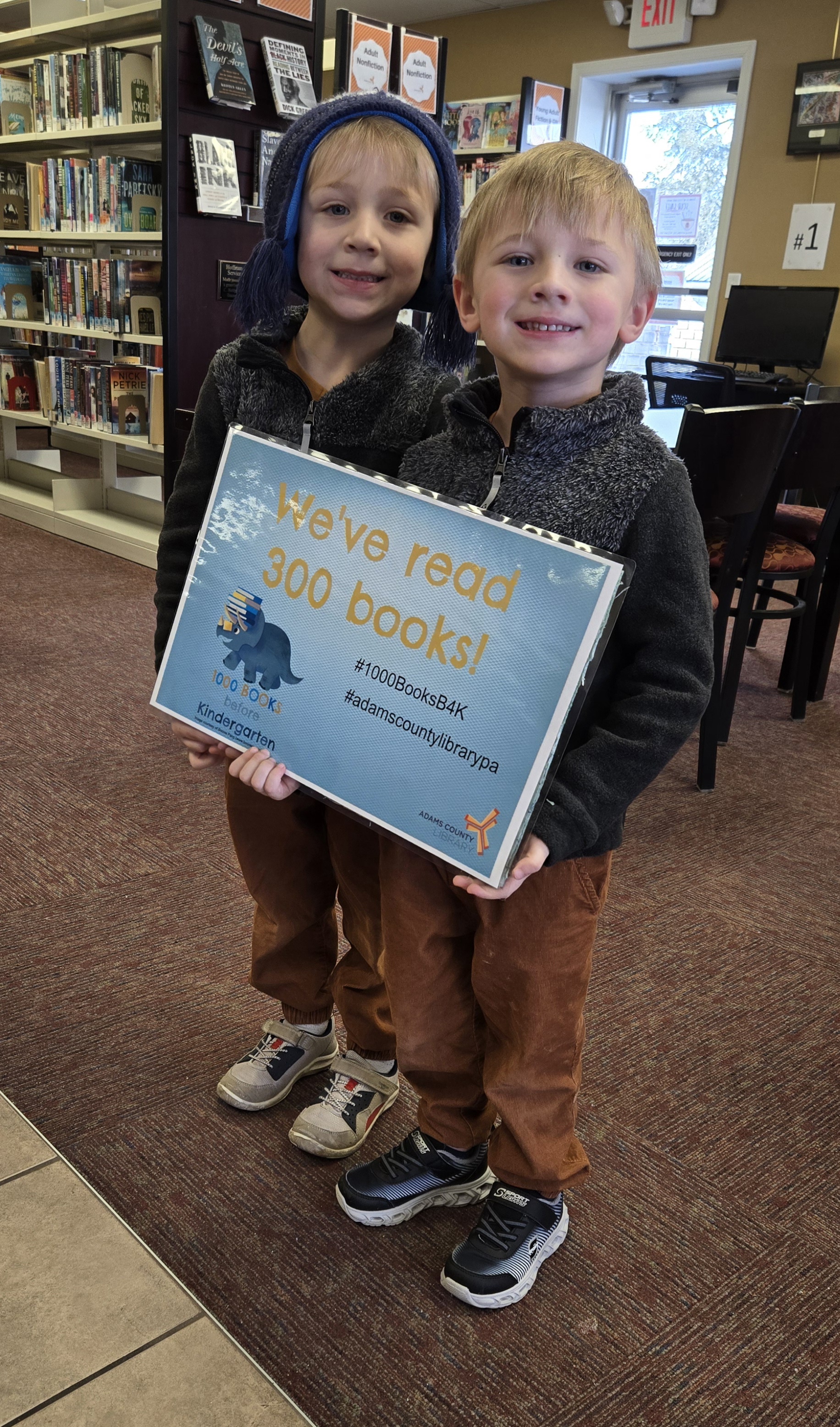
How to Participate
1,000 Things Before Kindergarten is a program designed to help parents prepare their children for an important milestone: Kindergarten! Research has shown that children get ready to read years before they begin their formal education, and an excellent way to get your child ready to learn is by reading to them.
So how does 1,000 Things Before Kindergarten work?
- 1. Register: Sign up at any ACLS library and pick up the program materials at the library. You will receive a folder which will include suggestions of activities to complete with your child. Or you can register online.
- 2. Track Your Reading and Activities: For each book read or activity completed simply color in one of the bubbles on your log or track your progress through Beanstack.
- Read with your child whenever and wherever possible.
Why is this program important?
Studies show that children who are read to from birth until Kindergarten are more prepared for school. The idea of 1,000 Things is to add the five basics of early childhood parenting into your family’s bonding routine:
- Maximize love, Manage Stress
- Talk, Sing, and Point
- Count, Group, and Compare
- Explore Through Movement and Play
- Read and Discuss Stories
When you have read 100 books, you can log your accomplishment online or visit your Adams County Library and we can help you log your progress.
You can also celebrate your accomplishment by taking a picture of your child with our achievement signs for every 100 books that you read together!
Any book that is read at any library storytime that you attend counts towards your 1000 Things Before Kindergarten goal. Also, books that you read more than once, books on CD, eBooks, books read by other family members, any book read to your child counts towards your goal. The idea is to read, and don’t stop reading. Each story you share will benefit your child.
You are your child’s first teacher and your home is where your child begins to learn. When you talk, sing, read, write and play together, you are helping your child get ready to read! By reading aloud with a child, you are helping your child begin to develop background knowledge about a variety of topics, build vocabulary, become familiar with language patterns, develop familiarity with story structure, acquire familiarity with reading and identify reading as a pleasurable activity.
In 2014, the American Academy of Pediatrics (AAP) issued a policy statement recommending parent-child home reading beginning at birth and continuing at least through kindergarten. Behavioral evidence has shown that children who are read to, especially before school entry, experience stronger parent-child relationships and learn valuable language and literacy skills. Reading exerts a positive effect on the developing brain. Children who enter kindergarten with poor emergent literacy skills are at a significant disadvantage and are unlikely to catch up with their peers if not addressed early.

